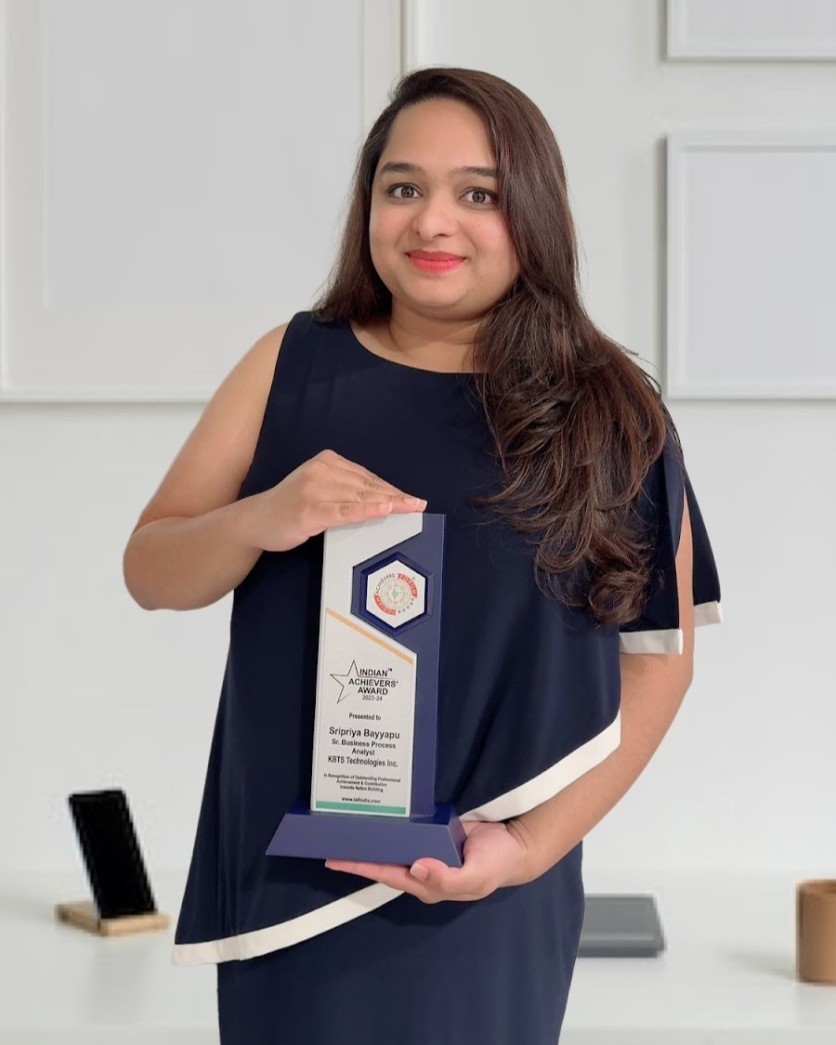
Humans have an innate desire for efficiency, driven to maximize outcomes while minimizing effort and resources. This pursuit of efficiency is not just a personal preference but a fundamental goal across various industries, yet it is especially critical in healthcare.
Delays or inefficiencies in healthcare systems can have dire consequences, potentially costing lives. As such, streamlining processes, reducing wait times, and improving care delivery are all focal points in the healthcare sector's ongoing efforts to enhance efficiency. The goal is to ensure that patients receive timely, effective treatment, making the most of available resources without compromising the quality of care.
However, the drive toward greater efficiency raises an important question: how can these streamlined systems retain their human touch, especially in healthcare, an inherently human-centric industry?
For healthcare technology expert Sripriya Bayyapu, the solution is to acknowledge the value of both. Technology should enhance rather than overshadow the human touch, while efficiencies should not compromise the warmth of personal care. Bayyapu speaks from her extensive career spanning over a decade in diverse fields such as healthcare, finance, automotive, disaster recovery, and energy, where she has mastered the art of doing more with less.
Now, as a senior business process analyst at KBTS Technologies INC, she applies her knowledge in the Health Information Technology (HIT) sector to refine and safeguard HIT in healthcare systems. However, her commitment goes beyond mere technical proficiency; she also uses technology to improve healthcare professionals' practices so they still have room for building relationships and maximizing patient care experiences.
Understanding the Need for Balance
Many healthcare technology tools, such as virtual consultations, AI-powered healthcare platforms, and high-tech service delivery models, are introduced at an unprecedented pace. Bayyapu explains that through these, healthcare providers can diagnose and treat patients more accurately and quickly, potentially transforming the overall patient experience.
However, these significant benefits also pose an emerging concern: these technological solutions, while efficient, might be overlooking a crucial aspect of healthcare: the human element. "These tools often lack the capacity for compassion and care intrinsic to the patient-provider relationship," Bayyapu adds.
Some argue that in the rush to adopt the latest technologies, there is a risk of creating a sterile, impersonal healthcare environment where patients feel more like data points than individuals. For Bayyapu, this highlights a growing challenge: finding a way to integrate these advanced technologies without sacrificing the compassion and care that lie at the heart of healthcare.
Striking the Right Balance, the Bayyapu Way
Bayyapu believes that the best patient outcomes are achieved when technology complements rather than supplants the human touch. By this, Bayyapu means ensuring platforms and features are created with the user in mind.
In integrating healthcare technologies, the International Best Research Awardee strongly emphasizes understanding patients' needs and desires from the services they use. Her methods begin with a deep dive into patient expectations, ensuring that the technologies developed are advanced and patient-centric.
Bayyapu adds, "Human touch is more expressed and effective when it hits the right spot. Patients love it when they experience improved processes exactly how they want them to be."
Bayyapu identifies creating user-friendly and easy-to-navigate platforms as the core of this approach, emphasizing the importance of making patients feel valued and cared for by providing quick access to necessary services.
Beyond improving patient experience, Bayyapu also advocates for reducing significant costs across the healthcare system. She has introduced system efficiencies in the healthcare systems she launched, optimized resource allocation, and demonstrated that cutting costs without compromising the quality of care provided is possible.
Bayyapu, an Indian Achiever's Forum Awardee, mentions, "Reduced overall cost for the healthcare system and processes means more affordable service pricing, which patients love. It will also cater to broader patients who need the service. It is like giving them top-notch service that considers their financial ability and access."
For Bayyapu, this is the true essence of balanced healthcare service: going beyond mere transactions and incorporating understanding, empathy, and a personal touch that reassures and comforts patients during their most vulnerable moments.
The Harder Work Balance Demands
As ideal as it seems, achieving the right balance between technological efficiency and patient-centered care is not always straightforward. It often requires a process of trial and error, demanding rigorous testing and continuous healthcare system evaluation.
This reality highlights the value of Bayyapu's contributions to the healthcare industry. Her expertise and dedication empower professionals to achieve technological proficiency in healthcare delivery while maintaining compassion in patient care. In her tireless pursuit, Bayyapu steers the course toward a U.S. healthcare system that truly serves its patients.
ⓒ 2025 TECHTIMES.com All rights reserved. Do not reproduce without permission.


![Best iPads that Students Can Use in School [2025]](https://d.techtimes.com/en/full/461431/best-ipads-that-students-can-use-school-2025.jpg?w=184&h=103&f=516289300e12e9647ef3d5bd69f49b70)


